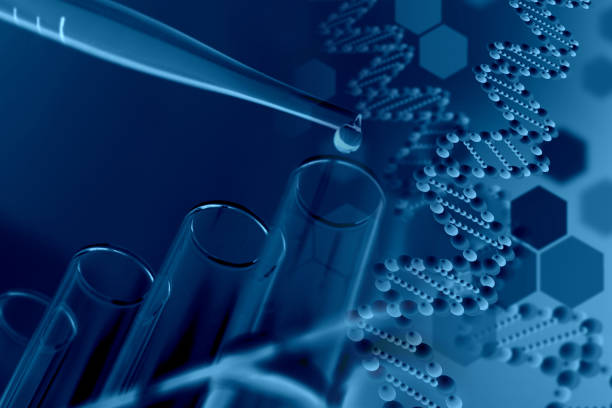Incorporated in 1980, the American Board of Medical Genetics and Genomics certifies individuals in the field of human genetics.
The establishment of the American Board of Medical Genetics and Genomics evolved out of a recognized need and commitment by the founding members to improve the level and standards of clinical care in the area of medical genetics, both for the care giver and the institutions providing care. It was also apparent that within this rapidly-expanding field, specific areas of expertise were emerging, all equally important components of the clinical genetics health care delivery system. Thus, a twelve-member Board of Directors was founded consisting of human geneticists representing expertise in the areas of clinical genetics, medical genetics, laboratory genetics (including clinical cytogenetics, clinical biochemical and clinical molecular genetics) and genetic counseling.
ABMGG Past Presidents & Board Chairs
| Dr. David Rimoin, President, 1980-1983 | Dr. OJ Miller, President, 1984-1985 | Dr. Walter Nance, President, 1986-1987 | Dr. C. Ronald Scott, President, 1988 | Dr. Larry Shapiro, President, 1989 | Dr. Charles Epstein, President, 1990-1991 |
| Dr. M. Anne Spence, President, 1992 | Dr. Thaddeus Kelly, President, 1993-1994 | Dr. Edward McCade, President, 1995-1996 | Dr. Peter Byers, President, 1997 | Dr. Daniel Van Dyke, President, 1998-1999 | Dr. Haig Kazazian, President, 2000 |
| Dr. Miriam Blitzer, President, 2001 | Dr. Roberta Pagon, President, 2002-2003 | Dr. Nancy Carpenter, President, 2004 | Dr. Georgia Wiesner, President, 2005 | Dr. Nancy Carpenter, President, 2006 | Dr. Stuart Schwartz, President, 2007 |
| Dr. Cynthia Moore, President, 2008 | Dr. Charles Schwartz, President, 2009 | Dr. Christopher Cunniff, President, 2010 | Dr. Tina Cowan, President, 2011 | Dr. Cynthia Powell, President, 2012 | Dr. Athena Cherry, President, 2013 |
| Dr. Laurie Demmer, President, 2015 | Dr. V. Reid Sutton, Chair, 2016-2017 | Dr. Ayesha Ahmad, Chair, 2018-2019 | Dr. Azra Ligon, Chair, 2020-2021 | Dr. Anne Slavotinek, Chair, 2022 | Dr. Katrina Dipple, Chair, 2023-2025 |
| Current: Dr. Peter Hulick, Chair, 2026- |
To reinforce its commitment to quality care at the individual level, the Board, with the assistance of the National Board of Medical Examiners, instituted certifying examinations in these areas of expertise. The first examination was offered in 1981. These certifying examinations are now offered annually (with the exception of Clinical & Medical Biochemical Genetics which is administered every two years).
Because the technology of medical genetics is advancing so rapidly, test questions must be thoroughly reviewed and rewritten each time to be sure that the geneticists who take the exams are thoroughly up-to-date in a fast-moving field. In order to be eligible to sit for the examination, the candidate must have successfully completed a minimum of two years in an ACGME-accredited training program. Individuals who want to sit for clinical genetics and genomics and a laboratory specialty must complete a minimum of three years in an ACGME-accredited training program (see training options).
In order to ensure that state-of-the-art techniques, standards and practices are being met at the institutional level, a stringent process of accreditation has been made available to programs that train medical genetics personnel in the areas of clinical and laboratory medicine. The Residency Review Committee (RRC) for the American Council of Graduate Medical Education (ACGME) accredits both clinical and laboratory training programs. The ABMGG accredited laboratory training programs through the end of 2023.
In September of 1991, the Executive Committee of the American Board of Medical Specialties (ABMS) and the Assembly of the ABMS approved our application for acceptance as a new board of the ABMS and, in a parallel but independent action, the Council on Medical Education of the American Medical Association approved the application in December of 1991. The ABMS has approved the certification of MD’s and PhD’s in the areas of clinical genetics and genomics, Ph.D. medical genetics (no longer offered), clinical biochemical genetics, clinical cytogenetics and genomics, and clinical molecular genetics and genomics. At the same time, the genetic counselors (master’s prepared individuals) established their own board for certification of individuals and the accreditation of graduate level training programs.
The American Board of Medical Genetics and Genomics is one of 24 medical specialty boards that make up ABMS. Through ABMS, the boards work together to establish common standards for physicians to achieve and maintain board certification. The boards were founded by their respective specialties to protect the public by assessing and certifying doctors who meet specific educational, training and professional requirements. The ABMGG is an independent, non-profit organization. For more information about ABMS, visit www.abms.org.
ABMS and the specialty boards are accountable both to the public and the medical profession through:
- Helping Patients by providing information about the board certification process and which doctors are board certified.
- Supporting Physicians by creating programs that assist doctors in staying current in their field and improve their practice.
- Collaborating with Healthcare Leaders to foster initiatives for the promotion and monitoring of healthcare quality.
- Transforming Healthcare by increasing awareness of the importance of board certification and lifelong learning in assuring quality care.
